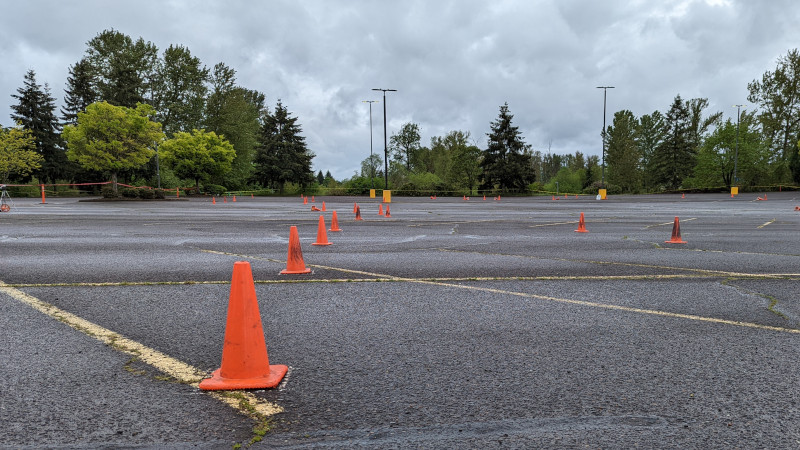Are you afraid to drive on the highway or freeway? You’re not alone. Maybe people hate driving on the freeway for a variety of reasons. Fortunately, there are some steps you can take to overcome these fears, and get a lot more comfortable behind the wheel.
What Causes Freeway Fears?
Depending on where you live, it’s not always possible to avoid driving on freeways. In fact, if you live in densely populated urban spaces, it is downright impossible to avoid freeways. You can try and take secondary roads but it takes longer and often, you don’t have that much time to spare.
As much as you hate it, freeways are a part of your life and you have to understand what scares you to be able to overcome it.
Sponsored Links
Here’s a list of some common reasons people fear the freeway, and what to do about them.
Fear of Driving Alone
This gets a lot of them. It is particularly not helpful if you already have a phobia. Sometimes, you will notice that you are fine as long as it is a familiar location. But the moment you have to head to a new place, the anxiety sets in. You start to have so many questions like:
- Is there enough gas in the car?
- What if I get lost in an area with no network coverage?
- What happens if I break down and have to stop on the freeway?
How To Overcome the Fear of Driving Alone
It is natural to have these thoughts pop into your head. The best thing you can do to overcome these fears is to prepare what you can in advance.
If you are worried about gas, start with a full tank. When you reach the halfway point, start thinking about places to pull off to look for fuel. Treat the last quarter of a tank as your reserves. Sometimes you need a little extra if there is an accident ahead, and you end up stuck in traffic for a while.
Sponsored Links
To prevent loss of navigation, you can often download your maps so they work offline. Alternatively, you can always keep a paper map in the car as a backup. Learn how to read this map before you take your trip.
Make sure all your vehicle’s maintenance is up to date. When was the last time the oil was changed? How are the tire pressures? Do you have enough brake fluid? These are common checks that are important to do before you go on a road trip.
Negative Past Experiences
This is understandable and also easy to guess. This fear gets amplified if you already have anxiety or have to deal with bad weather. It gets worse if you’ve been in an accident in the past, right? You’re worried that it will happen again. That’s quite understandable.
How to Overcome a Negative Past Experience
It’s important to remember that past events do not change the likelihood that an event will occur in the future. Learn what you can from your past experience, then try to put it out of your mind and move on. Sometimes accidents are not your fault, but you can learn to drive defensively to keep yourself out of most bad situations.
Sponsored Links
Fear of Losing Control
How good is your understanding of car control? If your car starts sliding, would you know what to do?
Lack of familiarity with the vehicle is probably why some people drive too slow on the highway, causing a lot of others to get annoyed. The fear of losing control is a tough one to beat too. It requires you to place your trust in yourself.
How to Overcome the Fear of Losing Control
The best way to learn car control is to sign up for a car control course. There are many varieties out there, ranging from skid cars to autocross to high performance driving events (HPDEs). Find the event type that works best for you, and spend some time out there with the vehicle you drive every day.
Once you learn how your vehicle behaves when the tires lose grip, you will gain immense confidence behind the wheel. Driving in rain or snow will not bother you so much once you have more hours of training under your belt.
Sponsored Links
Fear of Crashing
This is a big one. And it is different from negative experiences in the past. Sometimes it is bad enough to know that something happened to someone else. You need not have been there. And some other times, reading about these incidents or watching them in movies or documentaries can also trigger anxiety.
The root cause of many types of anxieties is an exaggerated fear of danger. It is also the inability to believe in your own capabilities to get yourself out of this perceived danger.
How to Overcome the Fear of Crashing
When you have a fear of driving on the freeway, you have to start by trusting yourself. You can do this by repeating some facts to yourself. You have a license which means that the state trusts you to drive. And this is not blind belief, because you have taken a test and passed it.
You have some experience driving and so far it has been pretty good overall. Even if you’ve been in an accident, mistakes happen. Learn what you can from the incident and try to move on as best you can.
Sponsored Links
It is understandable if the fear comes from a lack of faith in other drivers’ skills. But the first thing to remember is that anxiety paints the worst-case scenario in your head. The first step is to recognize these thoughts when you have them.
How to Help Yourself

The first step to solving a problem is to understand why it has the impact that it does. We have looked at some of the better-known reasons that cause freeway phobia. Now, let’s see what you can do to get professional help.
Throughout the process, remember that it’s okay to reach out and lean on family members and friends too. However, if someone you know starts giving unconstructive criticism about your situation, don’t feel obligated to take advice from them.
Sponsored Links
Now, here’s a look at some practices that have helped a lot of people.
Exposure Therapy
If your fear of driving on the freeway stems from the fact that you feel like you might get trapped and no one will come to your aid, here’s what you need to understand.
This is a type of agoraphobia and exposure therapy is a great way to deal with it. Agoraphobia is a kind of anxiety disorder. The person who experiences this avoids situations or places that might cause them to feel panic as they feel trapped or helpless. Sounds familiar, right?
In exposure therapy, with the help of a therapist, you spend time on the freeway for only as long as you are comfortable. The idea is to expose yourself to a place that triggers fear in you and increase the amount of time gradually till it is under control, if not entirely gone. As time passes, you will realize that the fear of being trapped or getting no help is probably unfounded.
Sponsored Links
Cognitive Behavioral Therapy
CBT is actually proven to be quite effective for individuals dealing with several mental health issues. This therapy helps you identify the twists (or distortions) in your thought process.
This is helpful because most phobias are based on nothing. Many of them are irrational too. Through CBT, you will identify that part of the fear and correct them with professional help.
Defensive Driving Course
This is typically for those who want to improve their driving skills. Consider your fear of driving on the freeway just a skill that needs to be worked upon, rather than a fear that needs to be conquered.
You will find books, DVDs and online courses on the subject. Certain DMVs can also help you find the course. Contact them. You can totally do this thing.
Sponsored Links
Get a Driving Coach
If you think that you can’t do it alone, it’s okay to lean on someone, especially when dealing with phobias. An experienced driving instructor is certainly a qualified person to get the job done.
Professional driving instructors are really good at meeting you where you’re at, and giving you the encouragement you need that builds you up. They can do this while also teaching you important skills that make you feel much better behind the wheel.
Bottom Line
Your fears of driving on the freeway are real and they are valid. The great news is you can overcome them with a little practice and persistence, as many have in the past.
Don’t be discouraged if you don’t see immediate results. Some fears are deeply rooted, and will take some time to fully understand.
Sponsored Links
Try to focus on your progress and achievements. Once you’re on the freeway, take a deep breath. Relax your hands, and look as far down the road as you can see so you know what the road ahead will bring. You can do this.

